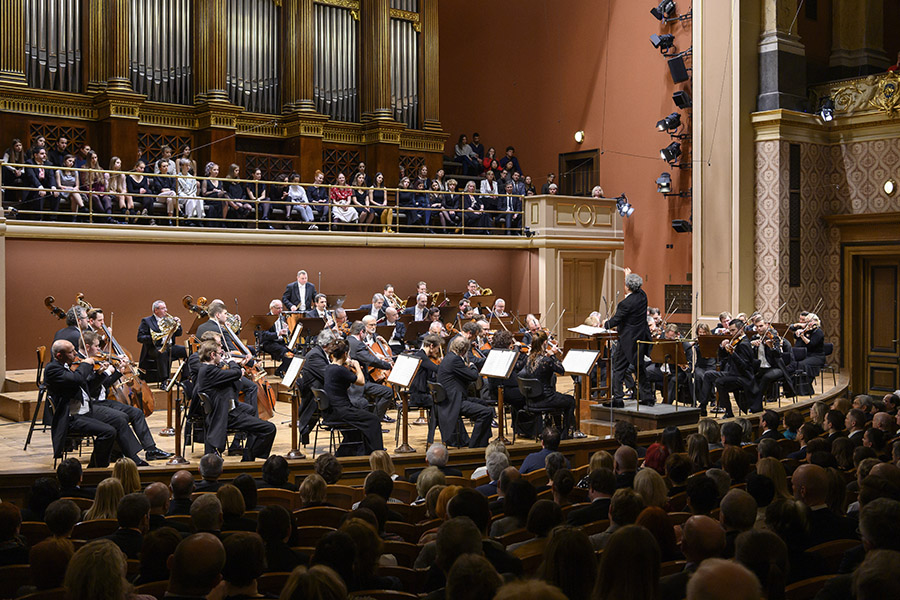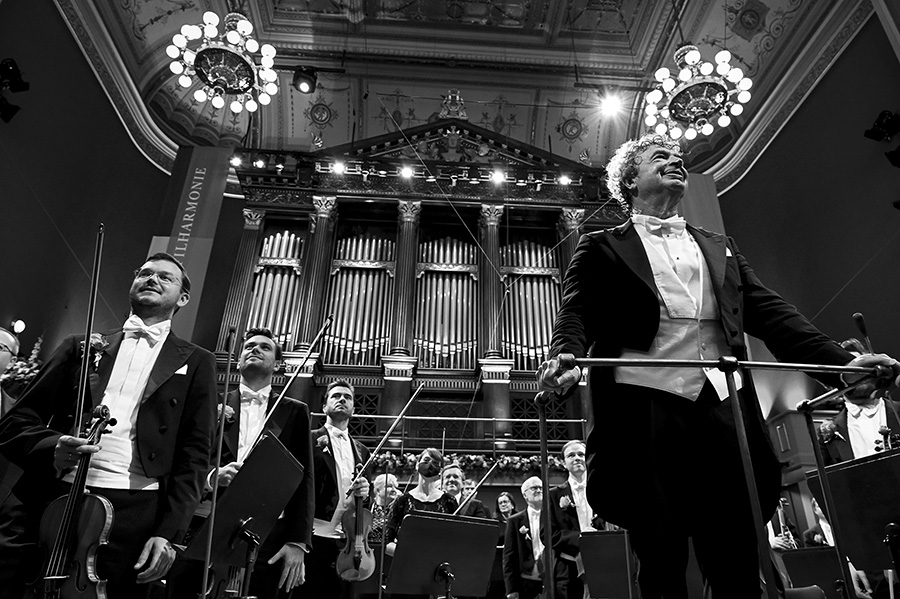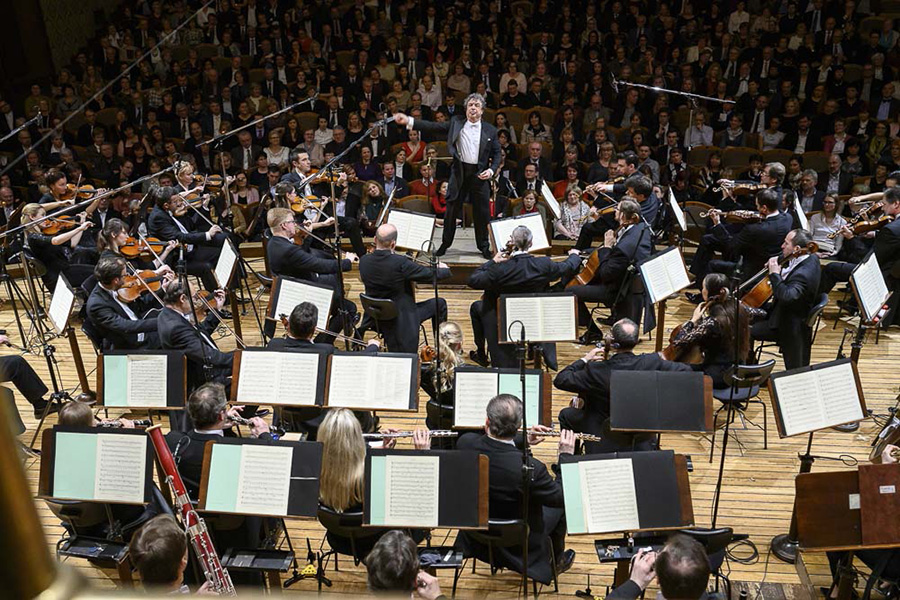The Czech Philharmonic, under Chief Conductor and Music Director Semyon Bychkov, opens its 126th season this week with a performance of the Shostakovich Symphony No 7 in C Major, Op 60 – Leningrad.
Marking his fourth year in charge of the Orchestra, Maestro Bychkov has chosen to launch the new season with the symphony which Shostakovich wrote during the siege of Leningrad by German forces during World War II, and which he dedicated to the people of that city, who had suffered so much. The symphony has a special significance for Semyon Bychkov – Leningrad is the city of his birth, and his mother was a survivor of the 900-day siege which claimed an estimated three-quarters of a million civilian lives.
It is thought that Dmitri Shostakovich started writing his Seventh Symphony before the German invasion of the Soviet Union in June 1941, and remained in Leningrad at the start of the siege in September of that year. In October he was sent to Kuybyshev in the Volga, for his own safety, and finished the symphony there, where it had its first informal performance at a gathering of the composer’s colleagues, on March 5th, 1942. In a somewhat dramatic sequence of events, Shostakovich had the score microfilmed, and it was smuggled to Iran, driven to Egypt and flown via South America to the United States where it was given its American premiere by Arturo Toscanini and the NBC Symphony.
In the summer of 1942, the inhabitants of the city of Leningrad were starving, having lived under siege and bombardment by German forces for nearly a year. Conductor Karl Eliasberg was given instructions to start rehearsing the symphony with the Leningrad Radio Orchestra, but many of the orchestra’s players had succumbed to starvation. A call for help was put out over the city, and any soldier who was able to play an instrument sufficiently well to last the length of the performance, was released from military duty to participate in rehearsals and the performance.
With empty chairs in the orchestra to denote musicians who had died, the Leningrad premiere of the symphony was performed on August 9th, 1942, by “…. players who were victims of bombings and hunger and starvation and they were barely able to hold their instruments to play,” says Bychkov. The concert was broadcast on speakers throughout the city, and to the German troops as well. A German General was later quoted as saying: “When it finished I realised that never ever shall we be able to enter Leningrad. It is not a city that can be conquered.” The siege continued until January 1944 when the Soviet army penetrated the encirclement of Leningrad.
Semyon Bychkov leads the Czech Philharmonic in two performances of the Shostakovich Symphony No 7 on September 29th and 30th in Prague’s Rudolfinum, at 6.30 pm BST and 7.30 pm CET. The first performance will be broadcast on Czech TV (and will be available for 7 days afterwards on Czech TV’s iVysilani web player). International subscribers to takt1 can watch the live stream of the second performance on September 30th.
Other highlights of the 126th Czech Philharmonic season include appearances by conductors Alain Altinoglu, Manfred Honeck, Michael Tilson Thomas and Franz Welser-Möst. Pianist Yuja Wang will be Artist-in-Residence, and the season will also feature world premieres of new commissions by Bryce Dessner, Julian Anderson and Slavomír Hořínka. The season brochure can be downloaded via this link.
Information sourced from:
Czech Philharmonic programme notes



